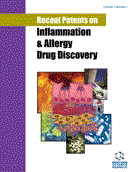Abstract
Glia-mediated or glia-propagated inflammation, which acts as the central component in the progression of several brain diseases, is a milestone in the pathophysiological process contributing to the onset or progression of neurodegeneration. Excessive and prolonged neuroinflammation compromises cell and brain function, resulting in fatal brain anomalies. Glial research has garnered attention recently following breakthroughs in neuroinflammation-targeting therapeutics. Activation of microglia and astrocytes, and the attendant expression of proinflammatory cytokines and chemokines, is often associated with disease-, trauma-, and toxicant-induced damage to the central nervous system. A cause-andeffect relationship exists between neuroinflammation and neurotoxic outcomes. In clinical settings, pharmacological antagonists and immunosuppressive regimens can be used to prevent proinflammatory responses and attenuate subsequent neurotoxicity. Current research is focused on the exploration of existing drugs approved for other clinical purposes and on the development of novel synthetic compounds that may selectively downregulate neuroinflammation. The development of innovative therapeutic classes based on targeted selection of glial activation pathways and glia-mediated pathophysiology seems to be a promising approach, and may lead to more effective prevention and treatment of neuroinflammation and resulting maladies. This review focuses on recent patents and emerging therapeutics related to the management of glia-mediated neuroinflammation.
Keywords: Central nervous system, glia, gliosis, inflammation, neuroinflammation, novel bioactive compounds.
 50
50














